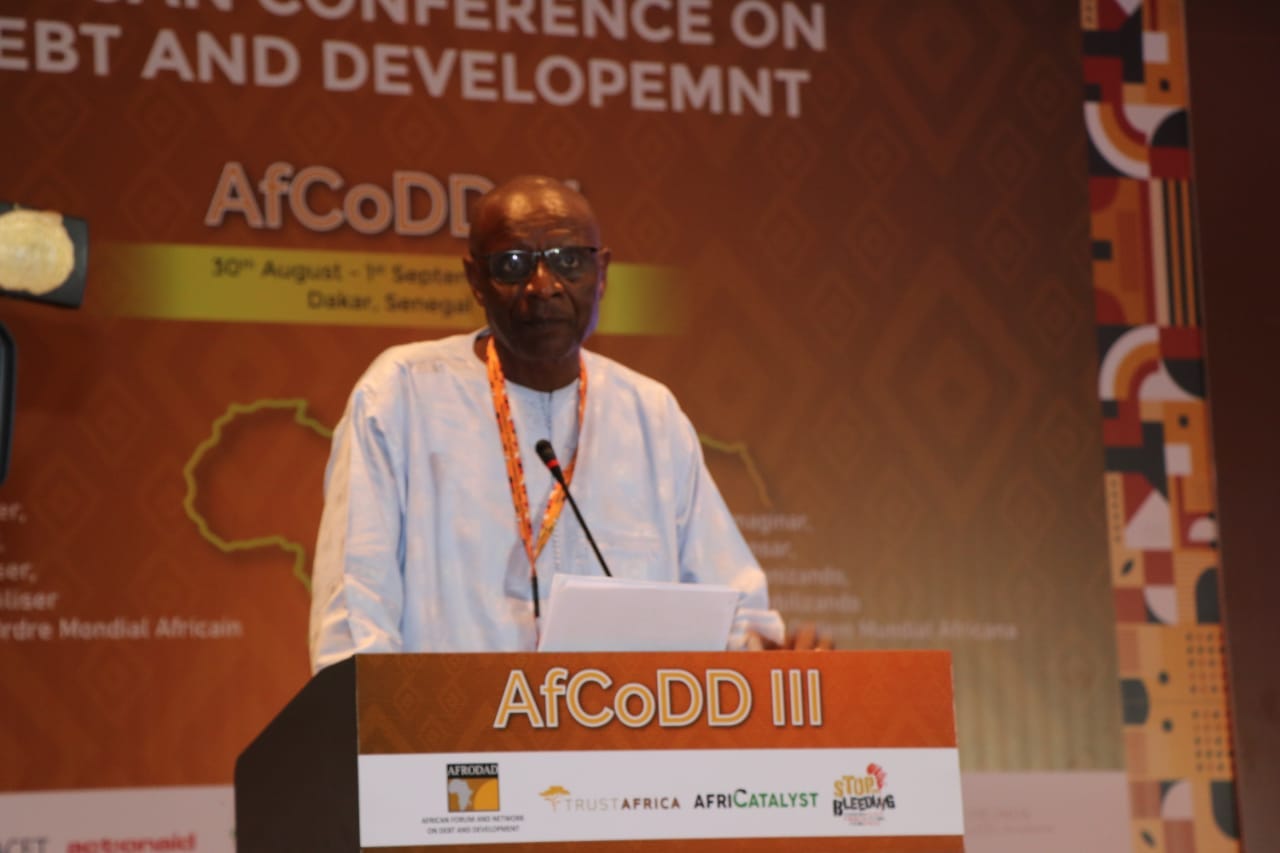Trust Africa Director Calls for Collective Pan-African Solutions to Forge a New Future
One of the notable aspects of this year's conference is the collaboration with Toast Africa, an organisation that has been working alongside Trust Africa on various initiatives.
Dakar, Senegal -The 3rd Edition of the African Conference on Debt and Development kicked off in Dakar, Senegal, on Wednesday, with Ebrima Sall, the Executive Director of Trust Africa, delivering a compelling speech emphasising the importance of collective action and Pan-African solutions to address the continent's most pressing challenges, writes Winston Mwale.
"These conferences have become an important rendezvous for deep and audacious reflections on the future of the continent, which is what development is about," Sall began, setting the tone for the conference that aims to tackle issues such as the debt crisis, climate change, inequality, and poverty.
Sall stressed that development is intrinsically linked to the future, stating, "Talking about development, but development is actually about our future."
One of the notable aspects of this year's conference is the collaboration with Toast Africa, an organisation that has been working alongside Trust Africa on various initiatives.
Sall expressed enthusiasm for partnering with Afrodart, saying, "So it was with great enthusiasm that we accepted Afrodart's invitation to partner with them in organising this third edition of the African Conference on Development on a theme that is just so important."
Highlighting the critical juncture facing the world, Sall mentioned the challenges of the climate crisis and the growing debt crisis.
He emphasised the need for a transition that births a "New World" different from the unsustainable current one.
Sall's vision for Africa in this new world is clear: "The world in which Africa will be a rule-maker, as has been said, and not only a rule-taker."
He outlined four essential steps: "reimagining, rethinking, reorganising, re-mobilizing for an African world order." These, he said, were not just suggestions but priorities and imperatives.
Trust Africa, a Pan-African organisation, has long advocated for Africans to lead their development. Sall expressed the importance of this approach: "Trust Africa is a Pan-African organisation that was born out of the conviction that Africans must set the agenda for our development and take the lead in shaping the future we want for our continent."
He highlighted the role Trust Africa has played in supporting organisations and networks across the continent through grant-making and research.
Turning to financial matters, Sall underscored the need for Africa to use its resources more effectively: "The financing of African transformation and development has to be done primarily with resources from Africa."
He called for a shift from merely exporting primary resources to adding value locally to ensure a fairer share of generated value.
One of the most pressing issues he raised was the problem of illicit financial flows from Africa. He noted a shocking increase in estimates, from $50 billion a year in 2015 to nearly $90 billion a year.
He advocated for concerted efforts to stop these losses and recover lost assets, which could provide substantial resources for Africa's development.
Sall also connected this issue with the initiative to promote the restitution of African heritage held in museums and collections outside of the continent, emphasising the interconnectedness of these processes.
The urgent need to address economic and financial crises in some African countries was also highlighted, with Sall calling for a transition process to "build forward better" rather than return to previous situations.
He acknowledged the complexity of the current global governance architecture and pointed out the role of rating agencies, often overlooked but immensely powerful.
Sall concluded by emphasising the importance of philanthropy in Africa's development and the need for African philanthropists to play a more significant role in financing and shaping the continent's future.
In closing, he echoed the moderator's sentiment: "The future is now."
The conference is expected to continue addressing these critical issues over the coming days, with a focus on fostering collective action and Pan-African solutions.




